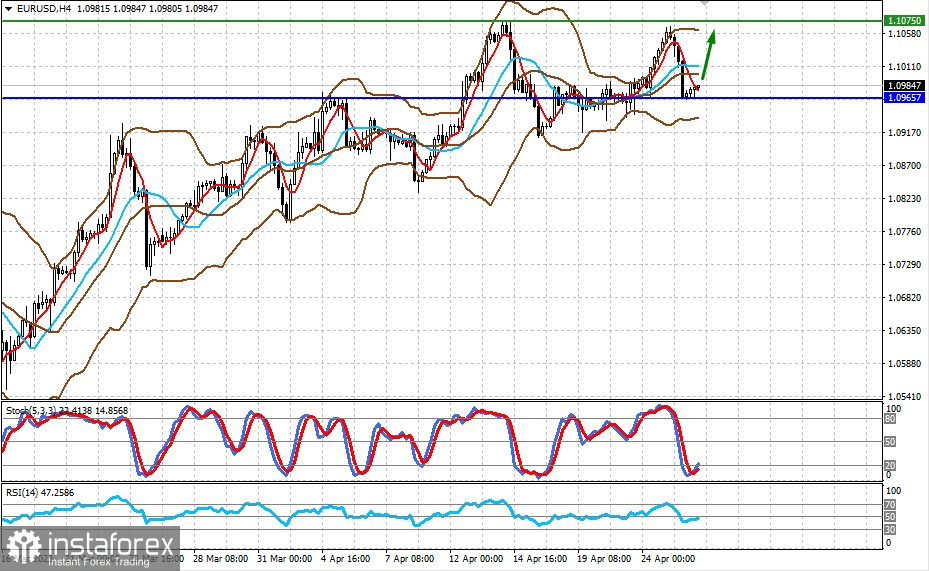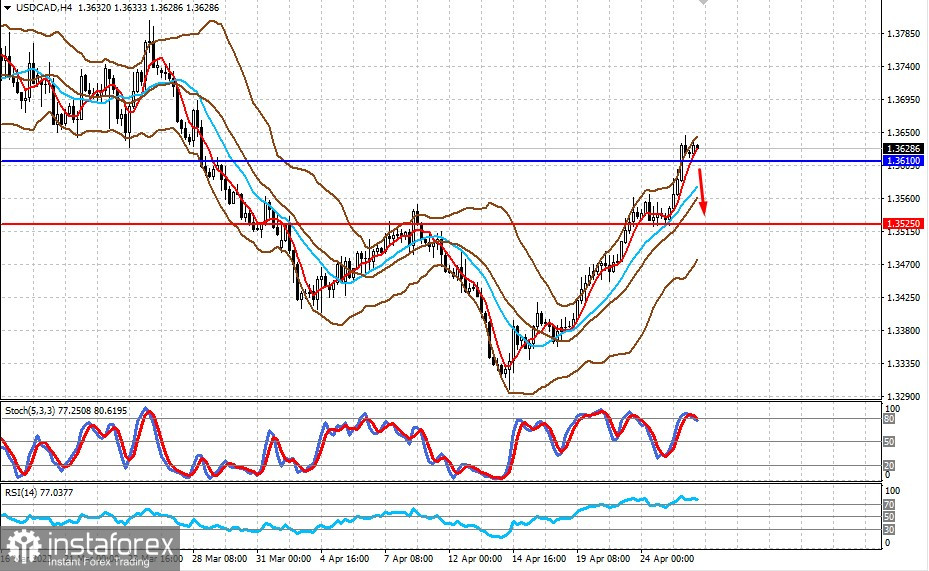The US stock market came under strong pressure on Tuesday, dragging European and Asian markets down as investors, watching the corporate earnings season, began to fear the start of a recession in the US as early as this summer.
The basis for these negative sentiments was the sharp drop in First Republic's shares by 49.37% after the announcement that the bank's deposits had shrunk by 41% in the last quarter. This raised concerns about a second wave of the banking crisis in the US.
Even the release of fairly good statistics on new home sales and the number of building permits issued could not hold back the wave of negativity. According to the reports, new home sales in March soared by 9.6% against a forecast of 1.1%. Meanwhile, the number of building permits issued rose to 1.430 million instead of just 1.413 million.
Unsurprisingly, the events in the stock market led to the strongest sell-off in Treasuries. The yield of 10-year bonds collapsed from 3.572% to 3.400% as investors moved away from risk. Of course, such a situation affected the dynamics of dollar, so the ICE dollar index dropped below 101.00 points. However, it recovered shortly after, returning above 101.50 points. It was supported by growing fears over the outlook of the US economy.
Yen and gold saw higher demand due to the situation, while other major currencies saw a decline. Oil prices fell, dragged down by the wave of negativity in the markets, despite the release of the weekly oil inventory report from the American Petroleum Institute (API), which showed a sharp drop of 6.083 million barrels against a forecast decline of 1.667 million barrels.
Obviously, investors pay more attention to current news, especially from the US stock market. That is why the negativity there spilled over to other markets. However, a lot still depends on the outcome of the Fed meeting next week, as the monetary policy decisions will determine which direction the markets will go. Hints about further rate hikes or its imminent end will affect market sentiment, which in turn will drive demand for stocks, stabilization of Treasury yields, and the strength of dollar. This only means that market volatility is likely to increase ahead of the Fed meeting on May 3.
Forecasts for today:


EUR/USD
The pair remains in an upward trend, and a consolidation above 1.0965 amid recovering demand in the stock markets will lead to a further growth to 1.1075.
USD/CAD
The pair is trading above 1.3610. Rising crude oil prices, as well as a possible reversal in the stock markets, could lead to a decline to 1.3525.





















